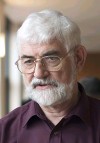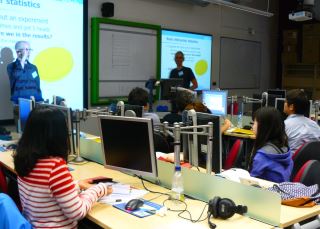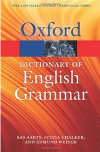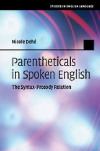Survey of English Usage
Annual Report 2014
The Annual Report for 2014 incorporates the newsletters published during the year.
1. News
1.1 Englicious
Englicious is a new website developed for teachers in primary and secondary schools to help them teach English literacy subjects, specifically grammar.
It is designed as a practical teaching and learning platform for primary and secondary schools with an emphasis on the grammar of English. Using UCL’s English language corpora the platform contains a wide variety of innovative and interactive teaching materials. These include classroom lessons on English grammar, activities focusing on how written and spoken language differ, projects on the different uses of English in diverse settings, tutorials on how to analyse texts from a range of genres, as well as an expanding library of videos. There are also many interactive exercises for students. In addition the site features a detailed and informative grammar glossary and CPD materials for teachers. Englicious has been tested in schools, and has now been released to the teaching community. To date hundreds of teachers have signed up to use the site.
![]() Have a look and sign up at www.englicious.org.
Have a look and sign up at www.englicious.org.
Spread the word!
1.2 Donation
Francis and Roland Quinault, sons of René Quinault, who worked in the Survey for many years, generously funded the filming and production of a video on English grammar that is embedded in the Englicious project. The video is called ‘Nouns, adjectives and determiners’, and is intended for teachers in primary and secondary schools to help them get to grips with the basics of English grammar.
To view the video, simply click on the panel above.
 1.3
English Grammar Day 2014
1.3
English Grammar Day 2014
During the summer we held the first ever English Grammar Day. The event was held at the British Library and involved a day of lectures and debate on the state of grammar — both in schools and beyond — with public participation in an Any Questions? session in the afternoon. Participants and speakers included leading authorities on language use Debbie Cameron, David Crystal, Dick Hudson, Debra Myhill and John Mullan.
The event will be held again on 29 June 2015 at the British Library.
1.4 Corpus Linguistics in the South 7
The Survey hosted Corpus Linguistics in the South 7 on Saturday 31 May. This one-day event focused on spoken language. Organised by Rachele De Felice, the programme included an invited paper by Gunther Kaltenböck (University of Vienna) and other talks:
- What can we do with a (parsed) spoken corpus? Sean Wallis, UCL
- Spoken Corpora: the paradox of transcription, John Kirk, Belfast
- “If you’ll just come next door”: Insubordinate if-clauses in spoken English, Gunther Kaltenböck, University of Vienna
- Using subtitle corpora to model aspects of spoken language, Kevin Tang, UCL
- Tracking involvement in university classroom talk: a corpus-based approach, Federica Barbieri, Swansea University
- Using naturalistic corpora to investigate topics in the acquisition of phonology, Sam Green, UCL
- Developing corpora for the visual modality: The case of sign language corpora, Kearsy Cormier and Jordan Fenlon, UCL
- Discursive representation of hunting in interviews, Clyde
Ancarno, King’s College
- Problems, solutions & where next? Open discussion led by Rachele De Felice, UCL
1.5 Olinco 2014
Bas Aarts and Sean Wallis were both invited speakers to Olinco 2014 in Olomouc, Czech Republic, on 5-7 June. Bas gave a plenary speech on ‘Investigating spoken English syntax and usage’ and Sean chaired a workshop on corpus linguistics and presented a paper on ‘What might a corpus of spoken data tell us about language?’
1.6 UK-Russia Linguistic Symposium
Bas Aarts gave a talk in Moscow entitled ‘Changes in how we speak: the English modal verbs’ at the UK-Russia Linguistic Symposium (part of the UK-Russia Year of Culture), organised by the British Council and the Russian State University for the Humanities.
1.7 Geoffrey Leech
 |
|
It is with immense sadness that during the summer we heard about the death of Geoffrey Leech, a much-loved colleague and friend.
Geoff studied for his BA, MA and PhD in the English Department at UCL, and was an Assistant Lecturer and Lecturer here from 1962-1969. He was closely involved with the Survey during the first decade of its existence. In 1969 he moved to Lancaster where he remained ever since. After his early retirement in 1996 he continued his research with undiminished vigour, travelling across the world to deliver seminars and lectures.
Geoff became well-known as one of the authors of the Grammar of Contemporary English (1972) and the Comprehensive Grammar of the English Language (1985), together with Randolph Quirk, Sidney Greenbaum and Jan Svartvik. He always stayed in touch with the Survey, and we are very proud to have recently published a book with him as co-editor.
Geoff was one of the world’s finest grammarians of English and a pioneering authority in the field of corpus linguistics. We will very much miss him as a friend and as an intellectual role model.
Geoff was due to be awarded an Honorary Degree from UCL on 29 August
2014. We are very sad that this event could not take place.
For an excerpt from Geoff’s autobiography, please visit his
page on the Survey website.
2. Summer School and Seminars
2.1 Summer School
 |
||
The Summer School in English Corpus Linguistics was held for the second time from Monday 7 July – Wednesday 9 July 2014. For more information about the three-day course, see this page.
We intend to run the Summer School again in 2015 and the dates will be announced on our website in due course. If you are interested in attending, let us know and we will keep you informed.
![]() For more information see here.
For more information see here.
2.2 Survey Seminars
The following seminars took place during 2014:
- 27 January, Professor Marc DeWaele, Birkbeck College. ‘Can one swear ‘appropriately’? A comparison of swearing in English L1 and English LX users.’
- 3 March, Professor Anne Furlong, University of Prince Edward Island, ‘Relevance theoretic perspectives on performance as adaptation.’
- 18 November, Dr Lynne Murphy, Sussex University. ‘‘Polite words’ words in American and British English: how please, thank you and sorry differ.’
- 9 December, Dr Philip Durkin, Oxford English Dictionary. ‘Lexical borrowing and basic vocabulary: How well can we quantify the impact of loanwords on the basic vocabulary of English? Can we identify any common patterns?’
3. Publications, conference presentations, talks, theses and other studies using Survey material
Please let us know if you would like us to include your publications based on SEU material. We will appreciate it if you send us offprints of any such publications.
Aarts, B. (2014) (with S. Chalker and E. Weiner) Oxford Dictionary of English Grammar. 2nd Ed. Oxford: Oxford University Press.
Aarts, B. (2014) (with S.A. Wallis) ‘Noun phrase simplicity in spoken English’. 2014. In: L. Veselovská and M. Janebová (eds.) Complex Visibles Out There. Proceedings of the Olomouc Linguistics Colloquium 2014: Language use and linguistic structure. Olomouc: Palacký University.
Aarts, B. (2014) ‘Investigating spoken English syntax and usage’. Plenary lecture presented at Olinco 2014, Olomouc, Czech Republic.
Aarts, B. (2014) ‘Changes in how we speak: the English modal verbs’. Plenary lecture presented at the symposium How the changing world view is reflected in Russian and English, as part of the 2014 UK-Russia Year of Culture, Russian State University for the Humanities, Moscow, Russian Federation.
Aarts, B. (2014) ‘What for?’ Paper presented at the Third Conference of the International Society for the Linguistics of English, University of Zurich.
Aarts, B. (2014) ‘On corpora’. Workshop conducted at the 25th Annual Conference of the Society for Editors and Proofreaders, Royal Holloway College, London.
Aarts, B. (2014) ‘Online resources for grammar teaching’. Paper presented at the Institute of Education, University of London.
Aijmer, K. (2014) ‘A variational pragmatic study of actually on the basis of four ICE-corpora’. Paper presented at the 35th meeting of the International Computer Archive of Modern and Medieval English (ICAME), Nottingham.
Alcaraz-Sintes, A. and S. Valera-Hernández (2014)(eds.) Diachrony and synchrony in English corpus linguistics. Bern etc.: Peter Lang.
Baker, W. and K. Womack (2014)(eds.), The year’s work in English studies, volume 93. Oxford: Oxford University Press
Biermeier, T. (2014) ‘Compounding and suffixation in world Englishes’. In: Bushfeld et al. 312-330.
Bushfeld, S., T. Hoffmann, M. Huber and A. Kautzsch (2014)(eds.) The evolution of Englishes: the dynamic model and beyond. Varieties of English Around the World G49. Amsterdam: John Benjamins.
Close, J. (2014) ‘A diachronic study of the stative possessive in spoken British English’. Paper presented at the 35th meeting of the International Computer Archive of Modern and Medieval English (ICAME), Nottingham.
Coto-Villalibre, E. (2014) ‘From prototypical to peripheral: the ‘get + Ven’ construction in contemporary spoken British English’. In: A. Alcaraz-Sintes and S. Valera-Hernández (2014)(eds.) 205-231.
Coto-Villalibre, E. (2014) ‘From verbal to adjectival participial constructions with get: an examination of the passive gradient in World Englishes’. Paper presented at the Third Conference of the International Society for the Linguistics of English, University of Zurich.
Davidse, K. (2014) ‘Specificational and presentational there-clefts’. Paper presented at Olinco 2014, Olomouc, Czech Republic.
De Felice, R. (2014) ‘Can response tokens be speech acts? A corpus pragmatics investigation?’ Paper presented at the 35th meeting of the International Computer Archive of Modern and Medieval English (ICAME), Nottingham.
De Felice, R. (2014) What can corpus pragmatics tell us about language? Invited seminar at the Department of Applied Linguistics, University of Massachusetts Boston, April 2014
De Felice, R. (2014) (with E. Moreton) The pragmatics of Business English: introducing the Corpus of Business English Correspondence. Paper presented at the 7th IVACS Conference, Newcastle, June 2014.
De Felice, R. (2014) Problems, solutions and where next? Open discussion session at Corpus Linguistics in the South, UCL.
Dehé, N. (2014) Parentheticals in spoken English: the syntax-prosody relation. Cambridge: Cambridge University Press.
Deuber, D. (2014) English in the Caribbean: variation, style and standards in Jamaica and Trinidad. Cambridge: Cambridge University Press.
Filppula, M. (2014) ‘HAVE TO vs. HAVE GOT TO in British and Irish English(es)’ Paper presented at the Third Conference of the International Society for the Linguistics of English, University of Zurich.
Francis, E. J. and L. A. Michaelis (2014) ‘Why move? How weight and discourse factors combine to predict relative clause extraposition in English’. In: B. MacWhinney, A. Malchukov, and E. Moravcsik (2014) (eds.). 70-87.
Fuchs, R., U. Gut and I. Presley (2014) ‘Recent Change in the Use of the Progressive in Nigerian English: An Apparent Time Study’. Paper presented at the 35th meeting of the International Computer Archive of Modern and Medieval English (ICAME), Nottingham.
Gisborne, N. and W. Hollmann (2014) (eds.) Theory and data in cognitive linguistics. Amsterdam & Philadelphia: John Benjamins.
Grafmiller, J., B. Heller, M. Roethlisberger and B. Szmrecsanyi (2014) ‘Exploring probabilistic grammar(s) in varieties of English around the world’. Paper presented at the 35th meeting of the International Computer Archive of Modern and Medieval English (ICAME), Nottingham.
Gries, S. Th. (2014) ‘The most underused method in corpus linguistics: Multi-level and mixed-effects models’. Paper presented at the 35th meeting of the International Computer Archive of Modern and Medieval English (ICAME), Nottingham.
Gries, S. Th. (2014) ‘Frequencies, probabilities, association measures in usage-/exemplar-based linguistics: some necessary clarifications’. In: N. Gisborne and W. Hollmann (eds.). 15-48.
Hedberg, N. and N. Elouazizi (2014) ‘Epistemic parenthetical verb phrases: c-command, semantic scope and prosodic phrasing’. To appear in Parenthetical verbs, ed. Stefan Schneider, Julie Glikman & Mathieu Avanzi. Berlin: De Gruyter.
Heller, B. (2014) ‘Automatic n-gram analysis (ANGA) on the basis of Biber et al.’s (1999) lexical bundle categories’ Paper presented at the 35th meeting of the International Computer Archive of Modern and Medieval English (ICAME), Nottingham.
Hoffmann, T. (2014) ‘The cognitive evolution of Englishes: the role of constructions in the Dynamic Model’. In: Bushfeld et al. 160-180.
Huber, M. (2014) ‘Stylistic and sociolinguistic variation in Schneider’s nativization phase: t-affrication and relativization in Ghanaian English’. In: Bushfeld et al. 86-106.
Huber, M. (2014) ‘Stylistic variation in an emerging New English. Evidence from ICE-Ghana’. Paper presented at the 35th meeting of the International Computer Archive of Modern and Medieval English (ICAME), Nottingham.
Kaltenböck, G. (2014) “If you’ll just come next door”: Insubordinate if-clauses in spoken English. Paper presented at the conference Corpus Linguistics in the South 7, UCL.
Kaltenböck, G. (2014) ‘On insubordination: form, function and development of insubordinate if-clauses’. Paper presented at the Third Conference of the International Society for the Linguistics of English, University of Zurich.
Kimps, D., K. Davidse and B. Cornillie (2014) ‘A usage-based analysis of the modal and discourse marker uses of English tag questions’. Paper presented at Olinco 2014, Olomouc, Czech Republic.
Kirk, J. (2014) ‘The Progressive and Durativity in Irish Standard English’. Paper presented at the 35th meeting of the International Computer Archive of Modern and Medieval English (ICAME), Nottingham.
Kirk, J. (2014) ‘Spoken Corpora: the paradox of transcription’. Paper presented at the conference Corpus Linguistics in the South 7, UCL.
Kirk, J. (2014) ‘The mandative subjunctive and linguistic change: where does Irish Standard English fit in?’. Paper presented at the Third Conference of the International Society for the Linguistics of English, University of Zurich.
Kranich, S. (2014) ‘The modals in recent English: A closer look at may and must’. Paper presented at the 35th meeting of the International Computer Archive of Modern and Medieval English (ICAME), Nottingham.
Leech, G. (2014) ‘The rise of cos and the downfall of for: exchanging reason connectives in recent English?’. Paper presented at the 35th meeting of the International Computer Archive of Modern and Medieval English (ICAME), Nottingham.
MacWhinney, B., E. Moravcsik and A. Malchukov (eds.) (2014) Competing Motivations. Oxford: Oxford University Press.
Mato-Míguez, B. (2014) ‘Between grammar and discourse: the variation between imperatives and insubordinated if-clauses in spoken English’. Paper presented at the Third Conference of the International Society for the Linguistics of English, University of Zurich.
Mehl, S. and K. Allan (2014) ‘English language: lexicography, lexicology and lexical semantics’. In: W. Baker and K. Womack (eds.), 35-43.
Mehl, S., S.A. Wallis and B. Aarts (2014). English Spelling and Punctuation (ESP). iOS app. London: Survey of English Usage.
Mehl, S., (2014) (with J. Arac) ‘Design’. The Keywords Project. Pittsburgh: University of Pittsburgh. http://keywords.pitt.edu.
Mehl, S., (2014) ‘Fundamental/Fundamentalism’. The Keywords Project. Pittsburgh: University of Pittsburgh. http://keywords.pitt.edu.
Mehl, S., (2014) ‘Fundamentalism’ Presentation at the Keywords Seminar (The Keywords Project), Jesus College, Cambridge
Mehl, S., (2014) ‘The Survey of English Usage: Project overview’. Preentation at the conference Translation and the Digital, Higher Education Academy (UK) and UCL.
Mehl, S., (2014) ‘Statistics for stylistics’. Presentation at the London Stylistics Circle, UCL.
Mindt, I. (2014) ‘Segmentation in spoken language’. Paper presented at the 35th meeting of the International Computer Archive of Modern and Medieval English (ICAME), Nottingham.
Palacios-Martinez, I. (2014) ‘Negative intensification in the spoken language of British adults and teenagers. A preliminary corpus-based study’. Paper presented at the 35th meeting of the International Computer Archive of Modern and Medieval English (ICAME), Nottingham.
Pfenninger, S.E., O. Timofeeva, A.-C. Gardner, A. Honkapohja, M. Hundt and D. Schreier (2014)(eds.) Contact, Variation, and Change in the History of English. Amsterdam: John Benjamins.
Qiu, Y. (2014) ‘Involved or informational? Gradability of adjectives in direct conversation and academic writing’. Paper presented at the 35th meeting of the International Computer Archive of Modern and Medieval English (ICAME), Nottingham.
Ronan, P. (2014) ‘Investigating expletives in varieties of English’. Paper presented at the 35th meeting of the International Computer Archive of Modern and Medieval English (ICAME), Nottingham.
Ronan, P. (2014) 'Tracing uses of will and would in Late Modern British and Irish English’. In: Pfenninger et al. (2014)(eds.) : 239-256.
Schilk, M. and S. Schaub (2014) ‘Noun phrase complexity across varieties of English: focus on syntactic function and text type’. Paper presented at the 35th meeting of the International Computer Archive of Modern and Medieval English (ICAME), Nottingham.
Schneider, A. (2014) ‘Future time marking in Ghanaian English: on how to interpret the results of a mixed effect logistic regression model for morphosyntactic variation in a new English variety’. Paper presented at the Third Conference of the International Society for the Linguistics of English, University of Zurich.
Schneider, E. (2014) ‘Animacy versus complexity? A corpus-based longitudinal investigation of the competition between possessive whose and of which’. Paper presented at the 35th meeting of the International Computer Archive of Modern and Medieval English (ICAME), Nottingham.
Schneider, G. and D. Schreier (2014) ‘Mass Nouns in English: Automatic Detection and Regional Variation’. Paper presented at the 35th meeting of the International Computer Archive of Modern and Medieval English (ICAME), Nottingham.
Taavitsainen, I., A. Jucker and J. Tuominen (2014)(eds.) Diachronic corpus pragmatics. Amsterdam: John Benjamins.
Traugott, E. (2014) ‘Intersubjectification and clause periphery’, In: L. Brems, L. Ghesquière and F. Van de Velde (2014)(eds.) Intersubjectivity and intersubjectification in grammar and discourse. Amsterdam: John Benjamins. 7-27.
Traugott, E. (2014) ‘Pragmatic salience as an enabling factor in morphosyntactic change’. Paper presented at the Third Conference of the International Society for the Linguistics of English, University of Zurich.
Wallis, S.A. (2014) ‘Rebalancing corpora’. Paper presented at the 35th meeting of the International Computer Archive of Modern and Medieval English (ICAME), Nottingham.
Wallis, S.A. (2014) (with Bas Aarts) ‘Noun phrase simplicity in spoken English’. 2014. In: L. Veselovská and M. Janebová (eds.) Complex Visibles Out There. Proceedings of the Olomouc Linguistics Colloquium 2014: Language use and linguistic structure. Olomouc: Palacký University.
Wallis, S.A. (2014) ‘What might a corpus of parsed spoken data tell us about language?’ In: L. Veselovská and M. Janebová (eds.) Complex Visibles Out There. Proceedings of the Olomouc Linguistics Colloquium 2014: Language use and linguistic structure. Olomouc: Palacký University.
Wallis, S.A. (2014) ‘What might a corpus of spoken data tell us about language?’. Paper presented at Olinco 2014, Olomouc, Czech Republic.
Wallis, S.A. (2014) What can we do with a (parsed) spoken corpus? Paper presented at the conference Corpus Linguistics in the South 7, UCL.
Wallis, S.A. (ongoing) corp.ling.stats blog (http://corplingstats.wordpress.com).
Winkle, C. (2014) ‘The syntax of spoken English: a cross-varietal perspective on left dislocation and fronting constructions’. Paper presented at the Third Conference of the International Society for the Linguistics of English, University of Zurich.
Zhang, C. (2014) ‘The motivating factors for the long passives in academic and non-academic writing’. Paper presented at the 35th meeting of the International Computer Archive of Modern and Medieval English (ICAME), Nottingham.
Zipp, L. (2014) Educated Fiji English: lexico-grammar and variety status. Amsterdam: John Benjamins.
Bas Aarts
Director
February 2015
This page last modified 17 February, 2023 by Survey Web Administrator.

